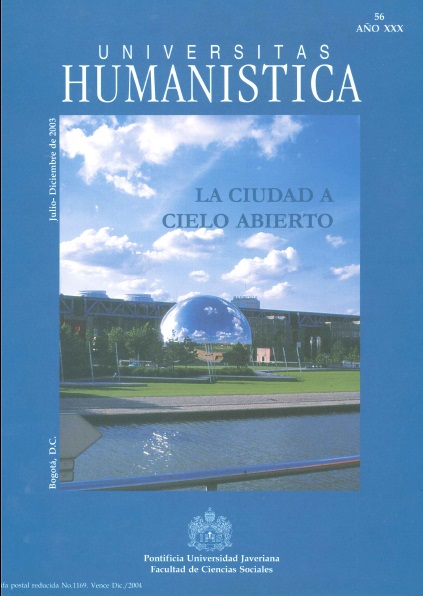Abstract
La ciudad no ha sido solamente una construcción urbanística y arquitectónica que hace posible que sus habitantes moren en ella o que transeúntes la recorran. Desde la caverna primigenia hasta los centros comerciales de hoy, la ciudad se reconoce en la casa y en cuarto, en las calles y los individuos, en la cultura ciudadana y del ciudadano, en actitudes y comportamientos públicos y privados. Domesticamos espacios y seres cuando creamos vínculos con ellos. El debate actual muestra que si la ciudad se ha domesticado con el paso de la historia, generando sentido de pertenencia, algunos fenómenos y comportamientos contemporáneos demuestran que ya no hay tanta inquietud por domesticarla, es decir por hacer que todo gire a su alrededor generando encuentro y comunicación, sino que la velocidad y los temores obligan a evitar vínculo. La ciudad se invade y se evade. Entonces, surge la pregunta: <<¿Cómo domesticar la ciudad en tiempos de vivencia efímera?>>
This journal provides immediate open access to its content on the principle that making research freely available to the public, encourages greater global exchange of knowledge.
The journal Universitas Humanística is registered under a Creative Commons Attribution 4.0 International Public License. Thus, this work may be reproduced, distributed, and publicly shared in digital format, as long as the names of the authors and Pontificia Universidad Javeriana are acknowledged. Others are allowed to quote, adapt, transform, auto-archive, republish, and create based on this material, for any purpose (even commercial ones), provided the authorship is duly acknowledged, a link to the original work is provided, and it is specified if changes have been made. Pontificia Universidad Javeriana does not hold the rights of published works and the authors are solely responsible for the contents of their works; they keep the moral, intellectual, privacy, and publicity rights.
Approving the intervention of the work (review, copy-editing, translation, layout) and the following outreach, are granted through an use license and not through an assignment of rights. This means the journal and Pontificia Universidad Javeriana cannot be held responsible for any ethical malpractice by the authors. As a consequence of the protection granted by the use license, the journal is not required to publish recantations or modify information already published, unless the errata stems from the editorial management process. Publishing contents in this journal does not generate royalties for contributors.


